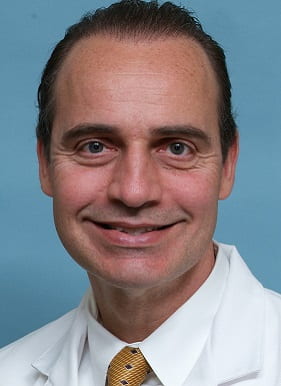
Dennis Hallahan, MD
Elizabeth H. and James S. McDonnell, III Distinguished Professor of Medicine and Head, WashU Radiation Oncology
- Phone: 314-362-9700
- Email: dhallahan@nospam.wustl.edu
The mechanisms of cell death in normal tissues during cancer therapy
Cancer Biology and Molecular Biology
Unresectable malignant gliomas (MG) are universally fatal especially in children with brain stem and midbrain gliomas. Disease progression occurs despite wide margins of irradiation and high radiation doses. Swelling within the tumor, angiogenesis and invasion are hallmarks of malignant gliomas. We have studied the mechanisms by which MG develops resistance to radiation therapy. We have found that an enzyme lyso-PLD (also known as autotaxin) produces a substance, LPA, which can regulate radiation resistance, swelling and angiogenesis within tumors treated with radiation therapy. The over arching hypothesis of this research is that interruption of the signaling through lyso-PLD or the LPA receptors will improve malignant glioma response to therapy. Inhibitors of these molecular targets are presently in development at pharmaceutical companies. We study the efficacy of specific inhibitors of lyso-PLD and LPA receptors when combined with radiotherapy in mouse models of human malignant gliomas.
Neurobiology and Signal Transduction
The Hallahan laboratory studies the mechanisms of cell death in normal tissues during cancer therapy. In particular, we have found that a signal transduction pathway required for radiation induced apoptosis in normal tissues involves glycogen synthase kinase 3beta. GSK-3beta regulates the apoptosis machinery within normal tissues. Cancer cells do not require GSK-3beta or apoptotic machinery to respond to cancer therapy. In contrast, injuries in normal tissues such as the brain and intestine require GSK-3 signaling. We have found that inhibitors of GSK-3beta prevent injury in normal tissues. These inhibitors prevent injury to the brain and improve neurocognitive function and reduce injury in the intestine of animal models. Presently, we are studying the mechanisms by which GSK-3 inhibition prevents program cell death in normal tissues. Studies involve the epigenetic response to GSK-3 inhibitors. We identify transcription factors and apoptotic machinery that are activated during cancer therapy but inhibited during GSK-3 blockade.